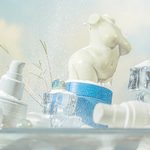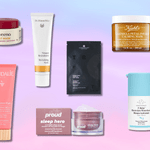How car seats can make your skin healthier
Skin-nourishing ingredients are being embedded in textiles, from socks to car seats. Here are three everyday products that claim to boost your beauty

Source: Best Health Magazine, March/April 2010
Clothing
‘ Airplus makes skin-moisturizing, aloe-infused socks that are super-soft; they’re available at most Canadian drugstores. The moisturizing effect lasts through multiple washes.
‘ In Japan, trendy T-shirts come embedded with vitamins. Made by Fujibo, each shirt contains a provitamin in the fabric that turns into vitamin C, which lasts for more than 30 washes. The vitamins, which are supposedly absorbed through your pores, inhibit sun damage and protect the skin’s collagen, says Kelly Koster, director, consumer strategist, health and beauty at Minnesota-based consumer research firm Iconoculture.
‘ Skineez Skincarewear is shapewear available in the U.S. that’s embedded with retinol and caffeine, which the company says moisturizes skin and reduces the look of cellulite. It comes with a spray to replenish the active ingredients, which wear off after six to 10 washings.
Bedding
‘ The fibres in the pillow covers and comforters of SkinGlow bedding by U.K.-based London Luxury (also in the U.S.) are bonded with a copper compound’supposedly good for skin’which is activated by moisture released during sleep. Clinical studies show that fine lines, wrinkles and crow’s feet are reduced in four weeks.
Cars
‘ The air conditioner in Japan’s Refi Subaru R2 minivan releases vitamins. The seat covers also contain a skin-moisturizing protein.
‘ In skin treatments of a different kind, Ford’s European cars (including the Mondeo sedan, the new Fiesta and the Focus, for example) are all about helping you avoid nasty hives and rashes. They’re made with low-allergy materials and are equipped with high-performance pollen filters that eliminate environmental allergens from their interior. They’ve been given the ‘allergy tested interior’ seal of approval by the TÜV group in Germany, an independent organization that certifies standards for industrial and consumer products.
This article was originally titled "The future is here," in the March/April 2010 issue of Best Health. Subscribe today to get the full Best Health experience’and never miss an issue!’and make sure to check out what’s new in the latest issue of Best Health.




